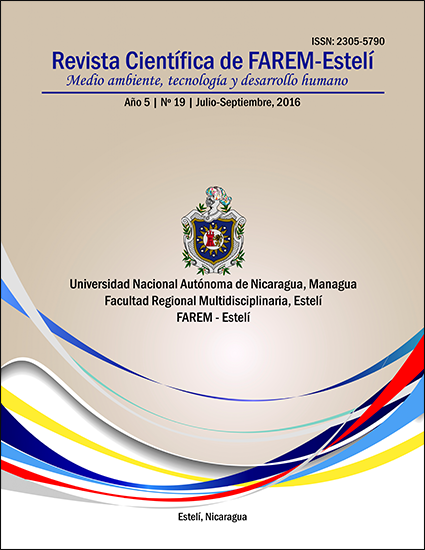Developing competencies in the New School Model. Rural University program, UNAN-Managua, Nicaragua
Abstract
The New School Model of the Rural University (Universidad del Campo) aims to develop competencies in students, for the implementation of the education basis defined by UNESCO; namely learn to know, learn to be, learn to make, learn to live and learn to live in harmony with the environment. This work featured interviews to teachers from the Sustainable Development Program in the Municipality of Tuma, La Dalia, and a focus group with 13 students. The main results reveal that the teachers hold a good technical formation, they implement active methodologies inside the classroom; however, they still apply a traditional methodology in some moments. Moreover, they are weak regarding evaluation procedures. They conduct research in a limited extent, and they do not apply theory in relation to problems identified. Learning to be deals with a behavior and values that start with what is conveyed by the facilitator. Learning to be deals with tolerance, which is systematically developed. When it comes to learning to live in harmony with the environment, an environmental conscience has been highlighted.
Key words: Learn to know, learn to be, learn to make, learn to live, learn to live in harmony with the environment.

